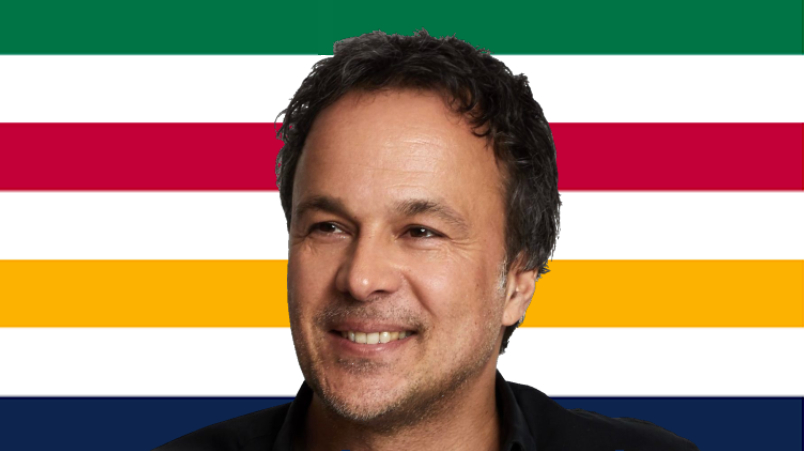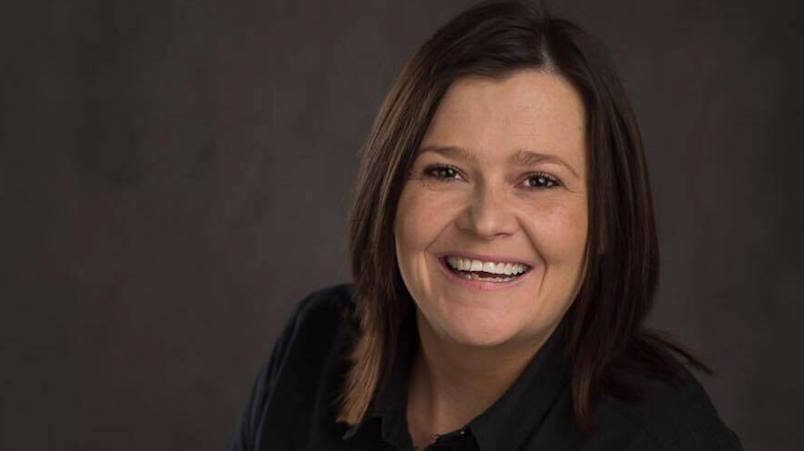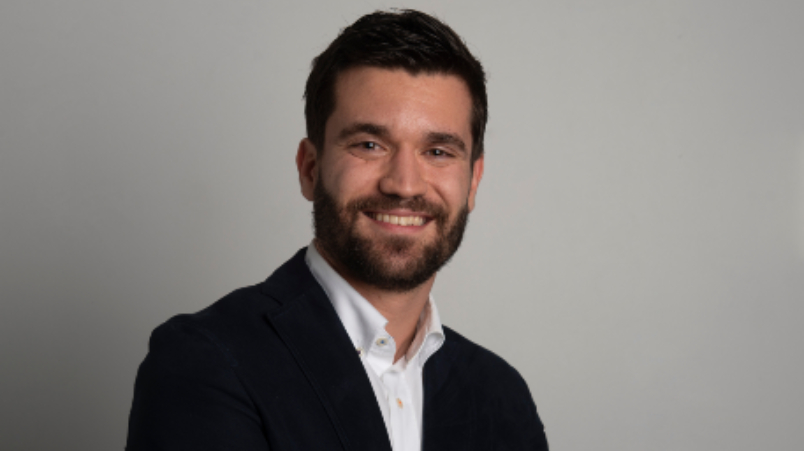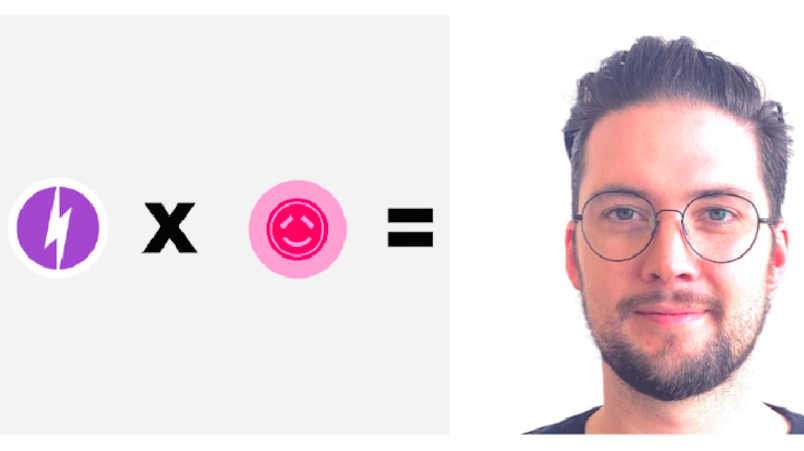Iconic no more: Why former CMO Alexander Meyer left The Iconic for Saks Fifth Avenue owner; creativity now trumps ‘table stakes’ digital marketing for competitive advantage

"David Jones and Myer,” former The Iconic CMO Alexander Meyer (pictured) says, are "ailing for good reason: They can’t refresh quick enough."
Digital "pureplayers won the online battle, omni retailers with an online-first mindset will win the retail war", says the The Iconic’s just departed CMO Alexander Meyer, born in Communist East Germany before the Berlin Wall fell in 1989. Few have been as deeply involved as a marketing practitioner through the digital marketing boom of the past 20 years as Meyer. But the targeting tools digital marketers have been using are fast hitting walls – think the mass harvesting of online user intent signals and cookies. Data and tech are now just standard tools today – the biggest business differentiator, says Meyer, is a swing back to creativity. He has just landed in Canada with The Bay, the new digital-first retail play by The Hudson’s Bay Company, which also owns Saks Fifth Avenue. It's the most exciting retail tech platform opportunity in the world right now, he reckons. He also says marketing can "save the world" – but it needs a radical rewiring.
What you need to know:
- Former CMO at The Iconic Alexander Meyer is moving to Canada to take up a role as Chief Customer Officer at The Bay, the digital spinoff of 351-year-old retailer Hudson’s Bay Company.
- This is the “most exciting retail tech platform opportunity in the world right now”, Meyer says, as it is an online-first, digitally-led transformation from a legacy retailer. This is the future.
- Meyer says the digital strategies that worked so well in the past – he admits cookie bombing was a thing in the early days of The Iconic – are disappearing, and creativity will be a key differentiator.
- Data and tech are “table stakes” now. Smart thinking, testing and a focus on the customer and demand rather than just products will win the retail war.
“We can see it with the likes of David Jones and Myer. They’re ailing for good reason and they can’t refresh quick enough… you basically have to leapfrog and it requires some brave, bold moves.”
Major bricks and mortar retailers have deeply suffered in the shift to digital, as Alexander Meyer, former chief marketer at The Iconic, well knows: He has contributed to their suffering. For the past five and a half years, he has overseen the marketing efforts – including days of cookie bombing, “even though it was seemingly annoying for people” – for one of the country’s online pureplay success stories. When he began, The Iconic was a $100 million company. Now, it is closing in on a billion-dollar valuation.
In 2022, however, he takes on a new challenge, moving to Canada to become the Chief Customer Officer of The Bay, the online venture from The Hudson’s Bay Company which he describes as the “most exciting retail tech platform opportunity in the world right now”. The way digital marketers worked for the past 20 years is coming to an end, Meyer says, and creativity will be the new frontier for growth.
Meyer, who lived the first 15 years of his life in East Germany before the fall of the Berlin Wall, has a good turn of phrase. The Bay is the “oldest young start-up in the world”. Online, he says, is a “mindset, not a channel”. And while pureplayers have won the online battle, “omni – when led with an online-first mindset – will win the retail war”. Meyer is moving to Canada to take a leading role in the next phase of this war.
A couple of things we learned…Just to put some product in a nice tag line on out of home will not do anything for you.…branded radio doesn’t work well for us at all, but promotional radio works really well. Australia knows the Harvey Norman ads. That shit works. Some TV ads worked well for us... some didn’t.
Moving to The Bay
The Hudson’s Bay Company is 351 years old. At that age, it’s not unseemly to describe itself as “iconic” – which it does. Yet the company is due for a shift, and it’s taking the “brave” step to let the digital side of the business lead brand and intellectual property. “You have a multi-billion-dollar business behind it already from the stores and the online, and you get investment because of this brave move to focus the omnichannel approach with an online mindset leading it. But at the same time, it’s a start up because they haven’t been led online,” Meyer says. “Where in the past online has been third violin in the orchestra, it’s now the first violin – or the conductor.”
He will oversee marketing for the physical stores, but likely with a video, social and mobile first mindset, rather than a visual merchandise window in mind. “We can see it in Australia. We can see it with the likes of David Jones and Myer,” Meyer says. “They’re ailing for good reason and they can’t refresh quick enough… you basically have to leapfrog and it requires some brave, bold moves.” Within the next two years, generations X, Y and Z will be the bigger spenders than the pre-baby boomers, boomers and millennials. “It’s a tsunami, a wave that is not stopping anywhere. And a lot of people will still have to go through that kind of change,” Meyer says.
The Bay is still a work in progress, but it is the shift to being demand and customer-led, rather than product-led, that appealed to him. When Napster arrived, the best approach Big Music could think of was to litigate and try and stop illegal downloads. “Instead of seeing the sign of the time and developing new business models,” Meyer says. “And the story holds true for any technological development.” Currently, blockchain technology, cryptocurrencies and Non-Fungible Tokens (NFTs) are going through the same Wild West early days at the moment, but the best ideas and winners eventually emerge.
We did (cookie bombing), and it worked. Even though it was seemingly annoying for people.
Cookie bombing worked… but it has crumbled
In the early days of Meyer’s work at The Iconic, where he joined in mid-2016, cookie bombing was a key strategy. “We did (it), and it worked,” he says. “Even though it was seemingly annoying for people.”
But while that meant targeting and re-targeting the same individuals over and over based on their search and browsing history, behind the scenes it was entirely automated. One-to-one advertising was, in reality, a machine-to-one.
“Most people don't understand it well. It's not like a conscious effort for me to target you specifically - I'm really following you. It is, basically, a scalable business model that is tech-empowered where I don't even feel the relationship to the consumer as a business,” Meyer says. “It's not like I'm following Paul specifically because I have the people and the resources to drop all these ads on them. It often is… ‘we can give you as a business, the self-serve tool that you can place some creative and the machine will find itself whom to target’. Don't worry about it. Here are the cost per clicks. It becomes a very non-personable reality where...as a business person that sits on the backside of that technology, you don't even feel the negative impact.”
Things have changed since then. Now, The Iconic has dabbled in radio, tested TV, and even looked at print catalogues again – but “in a very cool way with QR codes and shoppable product links”. “Just becoming bigger, we realised we can’t rely anymore only on new customer acquisition,” Meyer says. Australia is a limited market. Once they have touched every Australian in some way, all marketing is re-targeting.
Lessons in radio, OOH and TV - some really works, some bombs
“A couple of things we learned are: You cannot be lazy with out of home. Just to put some product in a nice tag line on out of home will not do anything for you. What we also learned is branded radio doesn’t work well for us at all, but promotional radio works really well. Australia knows the Harvey Norman ads. That shit works – that’s why they’re still doing it. It also works for us,” he says.
“Some TV ads worked well for us, and some didn’t. We did geo-incrementality testing where we looked at an area that is comparable to another area from a consumer behavioural point of view and ran TV in one and not in the other. We saw a big uplift in new customer acquisition.”
Some well-run TV campaigns had similar return on investment as paid search, Meyer says. But it came down to how they used their data and how they framed their brand.
Creativity touches on a lot of different topics...think of IKEA with its long, annoying hallways, and 7-Eleven with its bright lights and unpleasant layout. They work.
Data and tech are “table stakes” now
Big social shifts often take years to recognise, and that’s what’s happening with the shift towards consumer rights and privacy, Meyer says. Data and tech are no less important – “they’re probably more important than ever” – but they’ve become “table stakes”. “If you haven’t seen the light and if you haven’t invested in a first-party data strategy and are clearly on the road for that, you don’t have an opportunity to win any more,” he says. “And so the question now is, how do you handle that complexity?”
For The Iconic, over-dependence on a single channel was a big no no.
"In the history of The Iconic, I would say the biggest reliance initially was on organic search - so really focused, good SEO work - and then paid performance targeting mainly through Google and Facebook," Meyer says. "So basically, Google, Facebook and Display networks."
After a little while, the retailer reduced its Display load to experiment with more mid-funnel approaches - even while competitors continued with Display and saw 30 to 40 per cent of their sales from it.
"We reduced our dependency there, and we really ended up diversifying our activities for more mid-funnel digital activities, driving traffic through articles and inspiration... Becoming bigger, we realised we can't rely anymore only on new customer acquisition. If we have, so to speak, touched every Australian that has shopped fashion online already, we now have to convert the unconverted," he says. "And so becoming bigger, you naturally realise you not only need to go up in the funnel you need to diversify your channel mix naturally."
Meyer: "One of the biggest learnings for me in the last two years is a funny dichotomy - a seemingly existing dichotomy, but if you think about it, it's actually not - which is a lot of your above the line helps acquisition and conversion, and a lot of the digital helps in awareness and consideration. Even though we always thought 'digital is just conversion, lower funnel, and above the line is just upper funnel and brand metrics'."
His former CEO, Patrick Schmidt, encouraged everyone to constantly consider the potential risks the company faced and plan for those – a strategy inspired by author Jim Collins. Lack of brand messaging was one weakness that an online pureplay fuelled by display ads and cookie bombing faced.
“I come from originally longstanding consumer brands … and I’ve seen the power of brand first-hand,” Meyer says. “Those companies are very old and very successful for a very long time. And even today, when they are big commercial business, you can find basically anywhere in their marketing, they always focus on brand as a start.”
There are a lot of different types of things connected to [creativity]...in-house creatives or agencies? Always on content versus big campaigns...brand positioning and brand purpose.
‘Dark content’
The Iconic has been working with what Meyer calls “dark content”, which is articles written for a specific audience but difficult to find unless you are its intended target. It is not publicly listed on their website, but promotes recent trends. “We write hundreds of articles every month,” Meyer says. “We don’t have a big repository entry point through The Iconic website where you find them easily, but they have been targeted to come to your timeline.”
Creativity and storytelling is key
Meyer reads a quote he says comes from TBWA\Worldwide Chairman Lee Clow: “The art of storytelling, the art of the idea is ultimately going to come back after everyone is over this infatuation with the technology that allows us to deliver the ideas.” This is the world we live in, Meyer believes. In other words, the past decade has allowed businesses that were digitally sophisticated to grow quickly, but the deprecation of cookies, increasing demands for consumer privacy, and clampdowns on digital signals are removing that. Everyone will be on a similar playing field in their digital sophistication.
Rather, storytelling and creativity are going to be the key ingredients. “There are a lot of different types of things connected to this. For example, one of them is the question of in-house creatives or agencies. One is the question of always on content versus big campaigns. One is brand positioning, brand purpose. Creativity touches on a lot of different topics within that,” Meyer says. Think of IKEA with its long, annoying hallways, and 7-Eleven with its bright lights and unpleasant layout – Meyer agrees with IAG CMO Brent Smart that if every company created the seamless customer journey, every company would end up looking the same.
“It's about being customer obsessed, understanding the human that you're trying to work for,” he says. “What are you doing about them, and how do you then creatively bring that to life? And that's the cornerstone of it all for me.”
There is a trust gap in society and it needs to be filled because it will be filled by demagogues.
Marketers will save the world
It may be difficult to fathom, but Meyer believes marketers and marketing can save the world. Public trust in governments and media are at some of the lowest rates in history, while trust in business is often recorded as higher.
“There is a trust gap in society and it needs to be filled because it will be filled by demagogues otherwise,” Meyer says.
And this is where marketers come in. As more roles and expertise is automated, the human-focused expertise, the sociology, psychology, philosophy, will need to be injected into the C-suite by the CMO.
“There are things about being a driving force to keep the human at the forefront of decision making,” Meyer says. “There is a huge responsibility, but also a huge opportunity for marketeers to save the world.”







